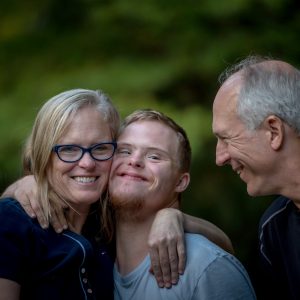January 5th, 2017 Newsletter

January 5th, 2017 Newsletter
January 5, 2017
Good morning and welcome to agebuzz… Headlining today’s topics:
-New Year, New List: Dr. Kernisan’s Top Ten For 2017
-The Take Away: How Repeal Of The ACA Will Affect Seniors
-Do It ‘Til It Hurts: How To Be A Superager
-The Social Network: Seniors Create Their Own Self-Run Communities
-Grand Parenting: The Benefits Of Occasional Caregiving
-Do Over: Spotlight On Re-Inventions At The Second Lives Club
-The Last Word
New Year, New List: Dr. Kernisan’s Top Ten For 2017: Regular readers of agebuzz already know about the terrific info available on Leslie Kernisan’s Better Health While Aging website. For the new year, Dr. Kernisan has published a helpful “Top 10” list of activities to make 2017 a happy and healthy one for you and your aging loved ones. Mindful of both physical and mental health, her suggestions include aerobic and strength building activity, medication reviews and more social gatherings. She even advises you to get that wish list together and start knocking off items! So grab your paper and pencil and start your own personalized list by reading Here.
The Take Away: How Repeal Of The ACA Will Affect Seniors: With repeal of the Affordable Care Act (ACA) as agenda item #1 in the new Congress, many may mistakenly assume that if they do not currently get insurance through the exchanges, they will not be affected. That is a wrong assumption. Repeal of the ACA will have massive impact throughout our health care system, including negative consequences for Medicare recipients and those who use Medicaid to pay for long term care (millions of people receive long term care services through Medicaid). For example, if the ACA is repealed, those who receive prescription drug coverage through Part D in Medicare may see the return of the “donut hole,” and potentially incur significant additional medication costs. As well, pilot programs to pay for community- based long term care rather than nursing home care will now be in jeopardy. Not to mention the massive disruption in hospitals and health care systems that deliver care to everyone, including seniors. Hold on to your hats- we’re in for a very bumpy ride. To read more about these potential changes, Read Here and Here.
Do It ‘Til It Hurts: How To Be A Superager: Dr. Lisa Feldman Barrett, a distinguished professor of psychology at Northeastern University, has some new year’s advice for those of you who want to stay as healthy and sharp as possible while aging: Do “it” until it hurts. What does that mean? Dr. Barrett and her research colleagues have studied the human brain and the activities that allow you to be a “superager,” i.e., someone who maintains youthful vigor and cognition despite advancing age. These researchers are coming to the conclusion that hard work, either physical or mental, and the drive to push through even when the effort is unpleasant or intense, helps you to become a superager. They suggest you find your passion, jump in and work hard at it. Intrigued? Jump in and Read Here.
The Social Network: Seniors Create Their Own Self-Run Communities: For many seniors, the idea of moving to a facility or community where someone else sets the rules and runs your life is a nightmare. At the same time, all too many seniors these days have no friends or loved ones to count on as the activities of daily living become more difficult to manage on their own. How to respond to this dilemma? A new movement is afoot called “senior cohousing,” a concept which brings together seniors to run their own, supportive living community without the rigid bureaucracy or set rules that are in place in more formally run long term care communities. In a recent posting on the independent website, Truthout, Professor Anne Glass of the University of North Carolina, who has long studied senior cohousing communities, describes the benefits and challenges of creating these new models of cohabitation. Read the interview with Dr. Glass Here.
Grand Parenting: The Benefits Of Occasional Caregiving: Whether you embrace or reject the role of being a grandparent, research has emerged that might influence your perspective: A new study from Berlin has documented that grandparents, or really any older people, who provide occasional caregiving help for their grandchildren have a 1/3 lower risk of dying than those who provide no help. It seems the physical and mental activities of this occasional help, along with providing a purpose, also provide additional health benefits. While this research does not apply to those grandparents who are primary caregivers for their grandchildren, it does also suggest that even helping out your adult children, or even non-relatives, can provide this same benefit. As long as the occasional help is not stressful, then doing good may also mean doing well for yourself. Need more reason to see the grandkids? Read Here.
Do Over: Spotlight On Re-Inventions At The Second Lives Club: For many of us who are approaching retirement or are just tired of the work we’ve done for the last umpteen years, the opportunity to remake ourselves with a new “encore” career is alluring. At the website Second Lives Club, founders Carrie Tuhy and Mary Lou Floyd occasionally blog about women who have taken the leap and created new professional lives for themselves despite the challenges that such re-invention poses. For example, their most recent post describes the career of Erica Abeel, whose “first life” had her on stage as a dancer with Martha Graham but whose “second life” finds her as a successful novelist. For anyone contemplating a next move, these profiles may provide a possible template. Or, maybe you want this website to profile your successful “encore” career. Either way, dust off your career wish-list and check out The Second Lives Club Here.
THE LAST WORD: “Youth and beauty are not accomplishments.” Carrie Fisher







